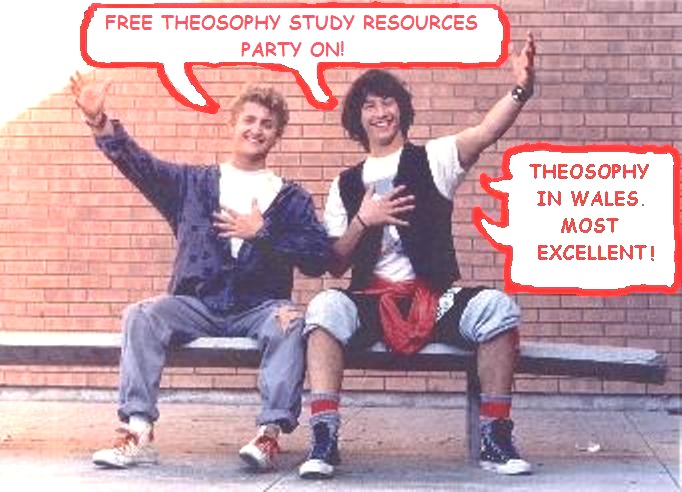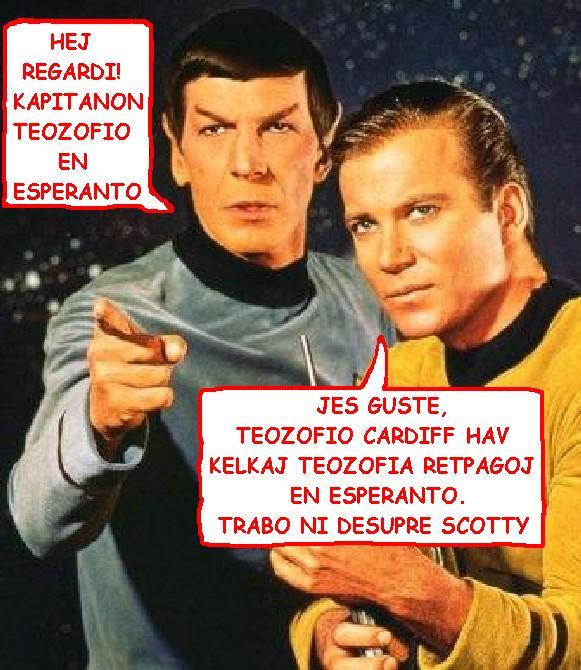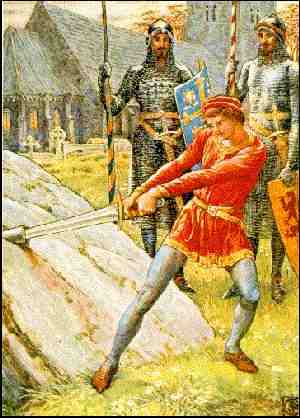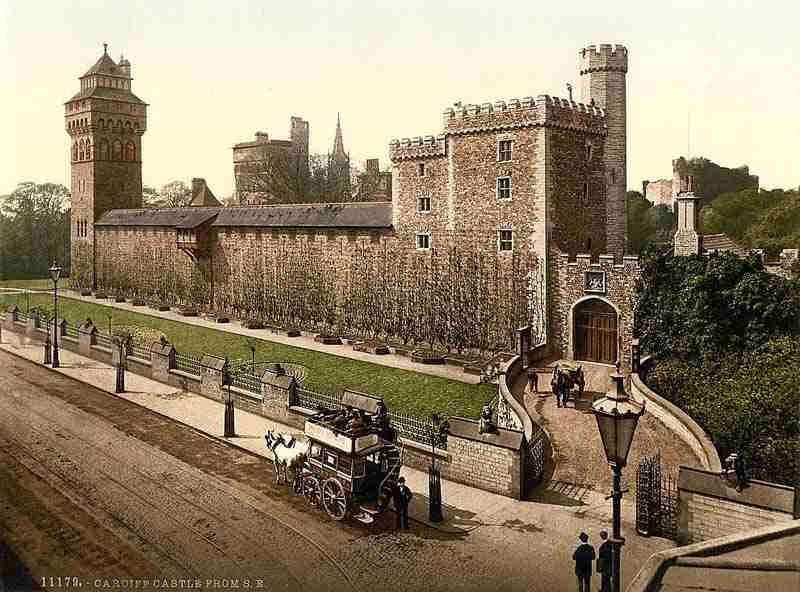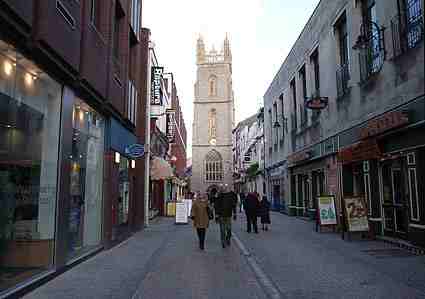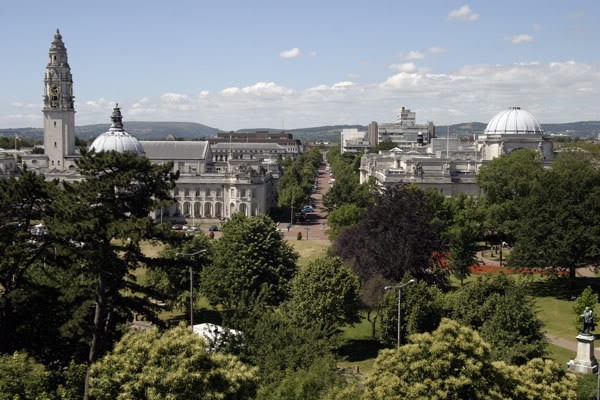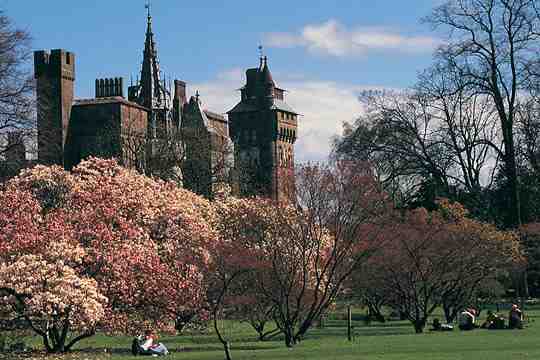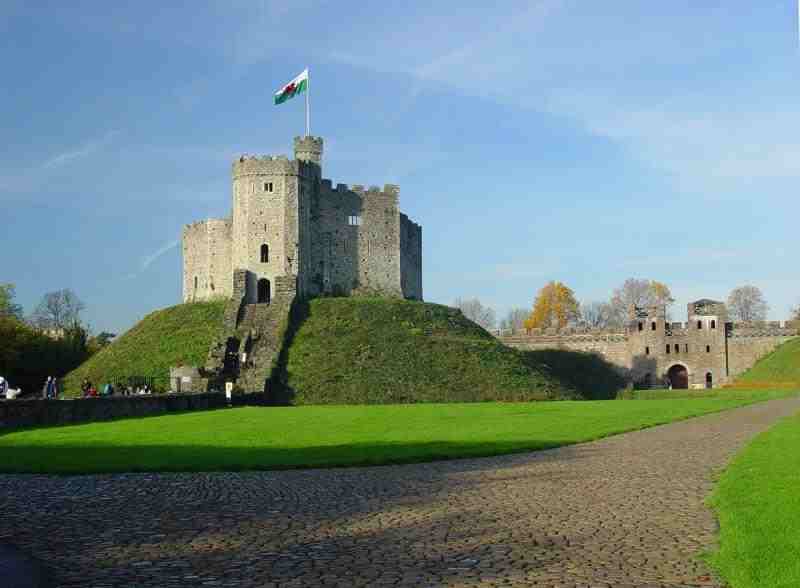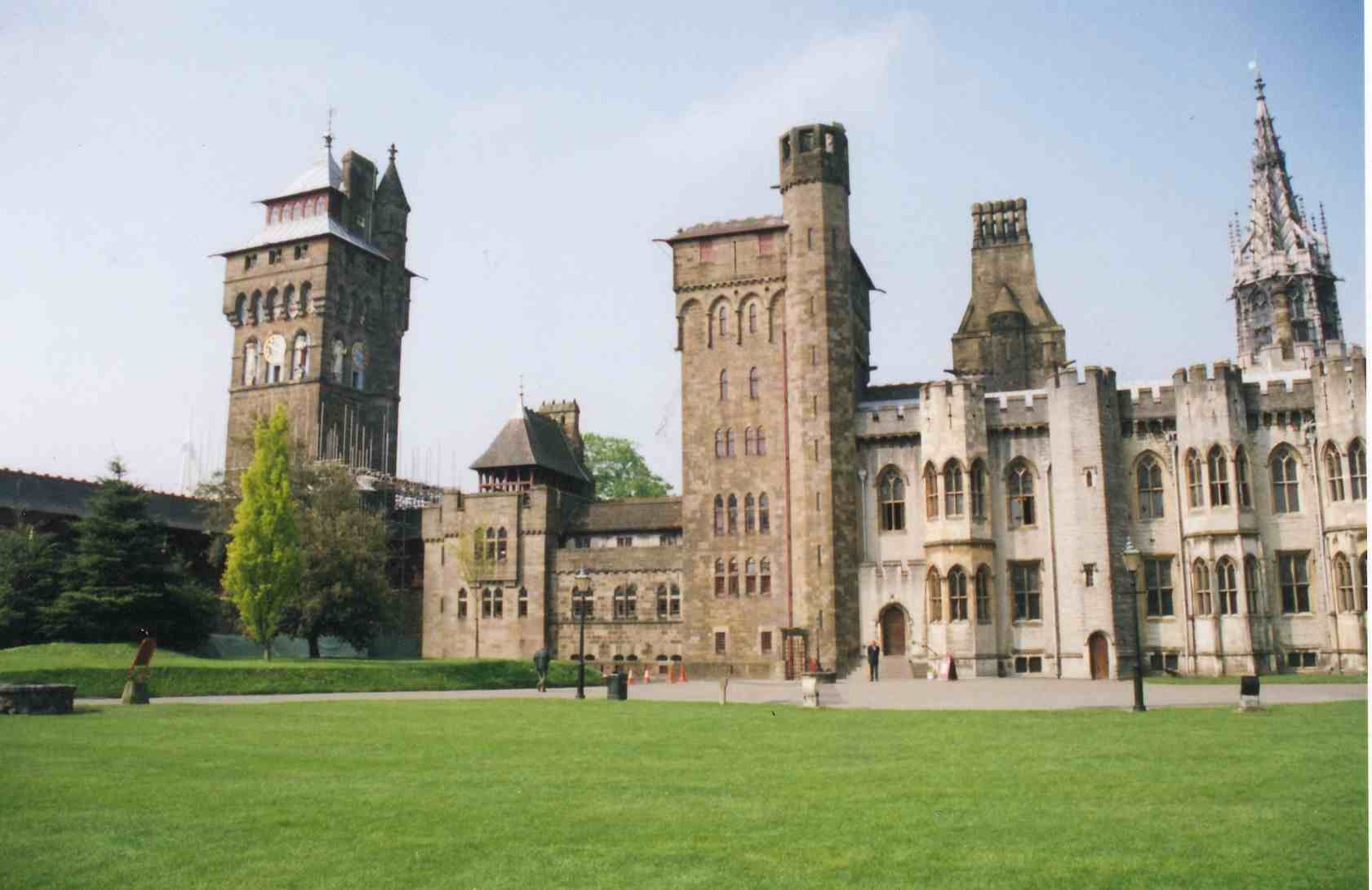THE
OF
THEOSOPHY
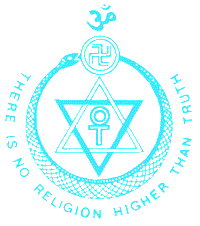
A
Definitive Work on Theosophy
By
William
Quan Judge
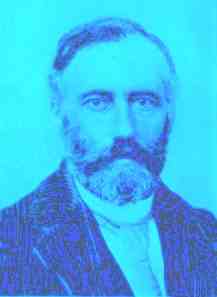
CHAPTER 10
Arguments Supporting Reincarnation
Unless we
deny the immortality of man and the existence of soul, there are no sound arguments
against the doctrine of pre-existence and rebirth save such as rest on the
dictum of the church that each soul is a new creation. This dictum can be
supported only by blind dogmatism, for given a soul we must sooner or later
arrive at the theory of rebirth, because even if each soul is new on this earth
it must keep on living somewhere after passing away, and in view of the known
order of nature will have other bodies in other planets or spheres.
Theosophy applies to the
self -- the thinker -- the same laws which are seen everywhere in operation
throughout nature, and those are all varieties of the great law that effects
follow causes and no effect is without a cause.
The soul's
immortality -- believed in by the mass of humanity -- demands embodiment here
or elsewhere, and to be embodied means reincarnation. If we come to this earth
for but a few years and then go to some other, the soul must be reimbodied
there as well as here, and if we have travelled from some other world we must
have had there too our proper vesture. The powers of mind and the laws
governing its motion, its attachment, and its detachment as given in
theosophical philosophy show that its reimbodiment must be here, where it moved
and worked, until such time as the mind is able to overcome the forces which
chain it to this globe. To permit the involved entity to transfer itself to
another scene of action before it had overcome all the causes drawing it here
and without its having worked out its responsibilities to other entities in the
same stream of evolution would be unjust and contrary to the powerful occult
laws and forces which continually operate upon it. The early Christian Fathers
saw this, and taught that the soul had fallen into matter and was obliged by
the law of its nature to toil upward again to the place from which it came.
They used an old
Greek hymn
which ran:
Eternal Mind, thy seedling spark,
Through this thin vase of clay,
Athwart the waves of chaos dark
Emits a timorous ray.
This mind enfolding soul is sown,
Incarnate germ in earth:
In pity, blessed Lord, then own
What claims in Thee its birth.
Far forth from Thee, thou central fire,
To earth's sad bondage cast,
Let not the trembling spark expire;
Absorb thine own at last!
Each human
being has a definite character different from every other human being, and
masses of beings aggregated into nations show as wholes that the national force
and distinguishing peculiarities go to make up a definite and separate national
character. These differences, both individual and national,
are due to
essential character and not to education.
Even the
doctrine of the survival of the fittest should show this, for the fitness can
not come from nothing but must at last show itself from the coming to the
surface of the actual inner character. And as both individuals and nations
among those who are ahead in the struggle with nature exhibit an immense force
in their character, we must find a place and time where the force was evolved.
These, Theosophy says, are this
earth and the whole period during which the human race has been on the planet.
So, then,
while heredity has something to do with the difference in character as to force
and morale, swaying the soul and mind a little and furnishing also the
appropriate place for receiving reward and punishment, it is not the cause for
the essential nature shown by every one.
But all these
differences, such as those shown by babes from birth, by adults as character
comes forth more and more, and by nations in their history, are due to long
experience gained during many lives on earth, are the outcome of the soul's own
evolution.
A survey of
one short human life gives no ground for the
production of
his inner nature. It is needful that each soul should have all possible
experience, and one life cannot give this even under the best conditions.
It would be
folly for the Almighty to put us here for such a short time, only to remove us
just when we had begun to see the object of life and the possibilities in it.
The mere selfish desire of a person to escape the trials and discipline of life
is not enough to set nature's laws aside, so the soul must be reborn until it
has ceased to set in motion the cause of rebirth, after having developed
character up to its possible limit as indicated by all the varieties of human
nature, when every experience has been passed through, and not until all of
truth that can be known has been acquired. The vast disparity among men in
respect to capacity compels us, if we wish to ascribe justice to Nature or to
God, to admit reincarnation and to trace the origin of the disparity back to
the past lives of the Ego. For people are as much hindered and handicapped,
abused and made the victims of seeming injustice because of limited capacity,
as they are by reason of circumstances of birth or education.
We see the uneducated
rising above circumstances of family and training, and often those born in good
families have very small capacity; but the troubles of nations and families
arise from want of capacity more than from any other cause.
And if we
consider savage races only, there the seeming injustice is enormous. For many
savages have good actual brain capacity but still are savage. This is because
the Ego in that body is still savage and undeveloped, for in contrast to the
savage there are many civilized men with small actual brain force who are
not savage in
nature because the indwelling Ego has had long experience in civilization
during other lives, and being a more developed soul has power to use the brain
instrument to its highest limit.
Each man
feels and knows that he has an individuality of his own, a personal identity
which bridges over not only the gaps made by sleep but also those sometimes
supervening on temporary lesions in the brain. This identity never breaks from
beginning to end of life in the normal person, and only the
persistence
and eternal character of the soul will account for it.
So, ever
since we began to remember, we know that our personal identity has not failed
us, no matter how bad may be our memory.
This disposes
of the argument that identity depends on recollection, for the reason that if
it did depend alone on recollection we should each day have to begin over
again, as we cannot remember the events of the past in detail, and some minds
remember but little yet feel their personal identity. And as it is often seen
that some who remember the least insist as strongly as the others on their
personal identity, that persistence of feeling must come from the old and
immortal soul.
Viewing life
and its probable object, with all the varied experience possible for man, one
must be forced to the conclusion that a single life is not enough for carrying
out all that is intended by Nature, to say nothing of what man
himself
desires to do. The scale of variety in experience is enormous. There is a vast
range of powers latent in man which we see may be developed if opportunity be
given. Knowledge infinite in scope and diversity lies before us, and especially
in these days when special investigation is the rule. We perceive
that we have
high aspirations with no time to reach up to their measure, while the great
troop of passions and desires, selfish motives and ambitions, war with us and
among themselves, pursuing us even to the door of death.
All these
have to be tried, conquered, used, subdued. One life is not enough for all
this. To say that we have but one life here with such possibilities put before
us and impossible of development is to make the universe and life a huge and
cruel joke
perpetrated
by a powerful God who is thus accused, by those who believe in a special
creation of souls, of triumphing and playing with puny man just because that
man is small and the creature of the Almighty.
A human life
at most is seventy years; statistics reduce this to about forty; and out of
that little remainder a large part is spent in sleep and another part in
childhood. Thus in one life it is perfectly impossible to attain to the merest
fraction of what
Nature
evidently has in view. We see many truths vaguely which a life gives us no time
to grasp, and especially is this so when men have to make such a struggle to
live at all. Our faculties are small or dwarfed or weak; one life gives no
opportunity to alter this; we perceive other powers latent in us that cannot
possibly be brought out in such a small space of time; and we have much
more than a
suspicion that the extent of the field of truth is vastly greater than the
narrow circle we are confined to.
It is not
reasonable to suppose that either God or nature projects us into a body simply
to fill us with bitterness because we can have no other opportunity here, but
rather we must conclude that a series of incarnations has led to the present
condition, and that the process of coming here again and again must go on for
the purpose of affording us the opportunity needed.
The mere fact
of dying is not of itself enough to bring about development of faculties or the
elimination of wrong tendency and inclination. If we assume that upon entering
heaven we at once acquire all knowledge and purity, then that state after death
is reduced to a dead level and life itself with all its discipline is shorn of
every meaning. Some of the churches teach of a school of discipline after death
where it is impudently stated that the Apostles themselves, well known to be
ignorant men, are to be the teachers. This is absurd and devoid of any basis or
reason in the natural order. Besides, if there is to be such subsequent
discipline, why were we projected into life at all? And why after the suffering
and the error committed are we taken from the place where we did our acts?
The only
solution left is in reincarnation. We come back to earth because on it and with
the beings upon it our deeds were performed; because it is the only proper
place where punishment and reward can be justly meted out; because here is the
only natural spot in which to continue the struggle toward perfection, toward
the development of the faculties we have and the destruction of the wickedness
in us. Justice to ourselves and to all other beings demands it, for we cannot
live for ourselves, and it would be unjust to permit some of us to escape,
leaving those who were participants with us to remain or to be plunged into a
hell of eternal duration.
The
persistence of savagery, the rise and decay of nations and civilizations, the
total extinction of nations, all demand an explanation found nowhere but in
reincarnation. Savagery remains because there are still Egos whose experience
is
so limited that
they are still savage; they will come up into higher races when ready.
Races die out
because the Egos have had enough of the experience that sort of race gives. So
we find the red Indian, the Hottentot, the Easter Islanders, and others as
examples of races deserted by high Egos and as they are dying away other souls
who have had no higher life in the past enter into the bodies of the race to go
on using them for the purpose of gaining such experience as the race body will
give. A race could not possibly arise and then suddenly go out. We see that
such is not the case, but science has no explanation; it simply says that this
is the fact, that nations decay. But in this explanation no account is taken of
the inner man nor of the recondite subtle and occult laws that unite to make a
race. Theosophy shows that the
energy drawn together has to expend itself gradually, and therefore the
reproduction of bodies of the character of that race will go on, though the
Egos are not compelled to inhabit bodies of that sort any longer than while
they are of the same development as the race. Hence a time comes when the whole
mass of Egos which built up the race leaves it for another physical environment
more
like themselves.
The economy of Nature will not permit the physical race to suddenly fade away,
and so in the real order of evolution other and less progressed Egos come in
and use the forms provided, keeping up the production of new bodies but less
and less in number each century.
These lower
Egos are not able to keep up to the limit of the capacity of the congeries of
energies left by the other Egos, and so while the new set gains as much
experience as is possible the race in time dies out after passing through its
decay. This is the explanation of what we may call descending savagery, and no
other theory will meet the facts. It has been sometimes thought by ethnologists
that the more civilized races kill off the other, but the fact is that in
consequence of the great difference between the Egos inhabiting the old race
body and the energy of that body itself, the females begin to be sterile, and
thus slowly but surely the number of deaths exceeds the births. China itself is
in process of decay, she being now in the almost stationary stage just before
the rush downward.
Great
civilizations like those of Egypt and Babylon have gone because the souls who
made them have long ago reincarnated in the great conquering nations of Europe
and the present American continents. As nations and races they have been
totally reincarnated and born again for greater and higher purposes than ever.
Of all the
old races the Aryan Indian alone yet remains as the preserver of the old
doctrines. It will one day rise again to its old heights of glory. The
appearance of geniuses and great minds in families destitute of these
qualities, as well as the extinction from a family of the genius shown by some
ancestor, can only be met by the law of rebirth. Napoleon the First came in a
family wholly unlike him in power and force. Nothing in his heredity will
explain his
character. He said himself, as told in the Memoirs of Prince Talleyrand, that
he was Charlemagne. Only by assuming for him a long series of lives giving the
right line of evolution or cause for his mind and nature and force to be
brought out, can we have the slightest idea why he or any other great genius
appeared at all. Mozart when an infant could compose orchestral
score. This
was not due to heredity, for such a score is not natural, but is forced,
mechanical, and wholly conventional, yet he understood it without schooling.
How? Because he was a musician reincarnated, with a musical brain furnished by
his family and thus not impeded in his endeavors to show forth his
musical
knowledge.
But stronger
yet is the case of Blind Tom, a Negro whose
family could
not by any possibility have a knowledge of the piano, a modern instrument, so
as to transmit that knowledge to the atoms of his body, yet he had great
musical power and knew the present mechanical musical scale on the piano. There
are hundreds of examples like these among the many prodigies who have appeared
to the world's astonishment. In India there are many histories of sages born
with complete knowledge of philosophy and the like, and doubtless in all
nations the same can be met with. This bringing back of knowledge also explains
instinct, for that is no more than recollection divisible into physical and
mental memory.
It is seen in
the child and the animal, and is no more than the result of previous
experience. And whether we look at the new-born babe flinging out its arms for
self-protection, or the animal with very strong instinctual power, or the bee
building a cell on the rules of geometry, it is all the effect of reincarnation
acting either in the mind or physical cell, for under what was first laid down
no atom is devoid of life, consciousness, and intelligence of its own.
In the case
of the musician Bach we have proof that heredity counts for nothing if the Ego
is not advanced, for his genius was not borne down his family line; it
gradually faded out, finally leaving the family stream entirely. So, too, the
coming of idiots or vicious children to parents who are good, pure, or highly
intellectual
is explained in the same way. They are cases where heredity is set at nought by
a wholly bad or deficient Ego.
And lastly,
the fact that certain inherent ideas are common to the whole race is explained
by the sages as due to recollection of such ideas, which were implanted in the
human mind at the very beginning of its evolutionary career on this planet by
those brothers and sages who learned their lessons and were
perfected in
former ages long before the development of this globe began. No explanation for
inherent ideas is offered by science that will do more than say, "they
exist." These were actually taught to the mass of Egos who are engaged in
this earth's
evolution; they were imprinted or burned into their natures, and always
recollected; they follow the Ego through the long pilgrimage.
It has been
often thought that the opposition to reincarnation has been solely based on
prejudice, when not due to a dogma which can only stand when the mind is bound
down and prevented from using its own powers. It is a doctrine the most noble
of all, and with its companion one of Karma, next to be
considered,
it alone gives the basis for ethics. There is no doubt in my mind that the
founder of Christianity took it for granted and that its present absence from
that religion is the reason for the contradiction between the professed ethics
of Christian nations and their actual practises which are so contrary to the
morals given out by Jesus.
______________________
THE
OF
THEOSOPHY

Find out
more about
Theosophy
with these links

The Cardiff Theosophical Society Website
The National Wales Theosophy Website
If you
run a Theosophy Group, please feel free
to use
any of the material on this site
The Most Basic Theosophy
Website in the Universe
A quick overview of Theosophy
and the Theosophical Society
If you run a Theosophy Group you
can use this as an introductory handout.
Theosophy Cardiff’s Instant Guide
One liners and quick explanations
H P Blavatsky is
usually the only
Theosophist that
most people have ever
heard of. Let’s
put that right
Theosophy Cardiff Nirvana Pages
The Voice of the Silence Website
An Independent Theosophical Republic
Links to Free Online Theosophy
Study Resources; Courses,
Writings,
The main criteria
for the inclusion of
links on this
site is that they have some
relationship
(however tenuous) to Theosophy
and are
lightweight, amusing or entertaining.
Topics include
Quantum Theory and Socks,
Dick Dastardly and Legendary Blues Singers.
The Voice of the Silence Website
This is for everyone, you don’t have to live
in Wales to make good use of this Website
The Seven Principles of Man
By
Annie Besant
No
Aardvarks were harmed in the
The Spiritual Home of Urban Theosophy
The Earth Base for Evolutionary Theosophy
Reincarnation
This guide
has been included in response
to the number
of enquiries we receive on this
subject at Cardiff Theosophical Society
From A Textbook
of Theosophy By C W Leadbeater
How We Remember our Past Lives
Life after Death & Reincarnation
The
Slaughter of the
a great
demand by the public for lectures on Reincarnation
Classic
Introductory Theosophy
Text
A
Text Book of Theosophy
By C
What Theosophy Is From the Absolute to Man
The Formation of a Solar System The Evolution of Life
The Constitution of Man After Death
Reincarnation
The Purpose of Life The Planetary Chains
The Result of Theosophical Study
The Occult World
By
Alfred Percy
Sinnett
The Occult World is an treatise on the
Occult and Occult Phenomena, presented
in
readable style, by an early giant of
the Theosophical Movement.
Preface to the American Edition Introduction
Occultism and its Adepts The Theosophical Society
First Occult Experiences Teachings of Occult Philosophy
Later Occult Phenomena Appendix
by
Annie Besant
THE PHYSICAL PLANE THE ASTRAL PLANE
KÂMALOKA THE MENTAL PLANE DEVACHAN
THE BUDDHIC AND NIRVANIC PLANES
THE THREE KINDS OF KARMA COLLECTIVE KARMA
THE LAW OF SACRIFICE MAN'S
ASCENT
______________________
Annie Besant Visits Cardiff 1924
The Theosophy Cardiff Nirvana Pages
National
Wales Centre for Theosophy
Blavatsky
Wales Theosophy Group
______________________
_______________________
Theosophy Cardiff Cancels its Affiliation
to the Adyar Based Theosophical Society
and becomes an independent body within
the Worldwide Theosophical Movement
Theosophy Birmingham (England)
The Birmingham Annie Besant Lodge
Theosophy Cardiff
has links with the
__________________
The
Theosophy Cardiff
Glastonbury
Pages
The Theosophy Cardiff Guide to
The Theosophy Cardiff Guide to
The Theosophy Cardiff Guide to
The Terraced Maze of Glastonbury Tor
Glastonbury and
Joseph of Arimathea
The Grave of King Arthur & Guinevere
Views of Glastonbury High Street
The Theosophy Cardiff Guide to
__________________
Camberley, Surrey,
England GU15 2LF
Concerns about the fate of the
wildlife as
Tekels Park is to
be Sold to a Developer
Concerns are
raised about the fate of the
wildlife as The Spiritual Retreat,
Tekels Park in
Camberley, Surrey,
England is to be
sold to a developer.
Tekels Park is a
50 acre woodland park,
purchased
for the Adyar Theosophical
In addition to
concern about the park,
many are worried about the future
of the Tekels
Park Deer as they
Confusion as the Theoversity moves out of
Tekels Park to
Southampton, Glastonbury &
Chorley in
Lancashire while the leadership claim
that the
Theosophical Society will carry on using
Tekels Park despite its sale to a developer
Anyone planning a
“Spiritual” stay at the
Tekels Park Guest
House should be aware of the sale.
Future
of Tekels Park Badgers in Doubt
Party On!
Tekels Park Theosophy NOT
Tekels Park & the Loch Ness Monster
A Satirical view
of the sale of Tekels Park
in Camberley,
Surrey to a developer
The Toff’s Guide to the Sale of Tekels Park
What the men in
top hats have to
say about the
sale of Tekels Park
__________________________
An
Outline of Theosophy
Charles
Webster Leadbeater
Theosophy - What it is How is it Known?
The Method of Observation General Principles
The Three Great Truths Advantage Gained from this Knowledge
The Deity
The Divine Scheme The Constitution of Man
The True Man
Reincarnation
The Wider Outlook
Death Man’s Past and Future Cause and Effect
______________________________
A B C D EFG H IJ KL M N OP QR S T UV WXYZ
Complete Theosophical Glossary in Plain Text Format
1.22MB
Quick Explanations
with Links to More Detailed Info
What is Theosophy ? Theosophy Defined (More Detail)
Three Fundamental Propositions Key Concepts of Theosophy
Cosmogenesis Anthropogenesis Root Races
Ascended Masters After Death States
The Seven Principles of Man Karma
Reincarnation Helena Petrovna Blavatsky
Colonel Henry Steel Olcott William Quan Judge
The Start of the Theosophical
Society
History of the Theosophical
Society
Theosophical Society Presidents
History of the Theosophical
Society in Wales
The Three Objectives of the
Theosophical Society
Explanation of the Theosophical
Society Emblem
The Theosophical Order of
Service (TOS)
Glossaries of Theosophical Terms
Index of
Searchable
Full Text
Versions of
Definitive
Theosophical
Works
H P Blavatsky’s Secret Doctrine
Isis Unveiled by H P Blavatsky
H P Blavatsky’s Esoteric Glossary
Mahatma Letters to A P Sinnett 1 - 25
A Modern Revival of Ancient Wisdom
(Selection of Articles by H P Blavatsky)
The Secret Doctrine – Volume 3
A compilation of H P Blavatsky’s
writings published after her death
Esoteric Christianity or the Lesser Mysteries
The Early Teachings of The Masters
A Collection of Fugitive Fragments
Fundamentals of the Esoteric Philosophy
Mystical,
Philosophical, Theosophical, Historical
and Scientific
Essays Selected from "The Theosophist"
Edited by George Robert Stow Mead
From Talks on the Path of Occultism - Vol. II
In the Twilight”
Series of Articles
The In the
Twilight” series appeared during
1898 in The
Theosophical Review and
from 1909-1913
in The Theosophist.
compiled from
information supplied by
her relatives
and friends and edited by A P Sinnett
Letters and
Talks on Theosophy and the Theosophical Life
Obras
Teosoficas En Espanol
Theosophische
Schriften Auf Deutsch
An Outstanding Introduction
to Theosophy
By a student of
Katherine Tingley
Elementary Theosophy Who is the Man? Body and Soul
Body, Soul and Spirit Reincarnation Karma
Nature
is infinite in space and time -- boundless and eternal, unfathomable and ineffable.
The all-pervading essence of infinite nature can be called space,
consciousness, life, substance, force, energy, divinity -- all of which are
fundamentally one.
2) The
finite and the infinite
Nature
is a unity in diversity, one in essence, manifold in form. The infinite whole
is composed of an infinite number of finite wholes -- the relatively stable and
autonomous things (natural systems or artefacts) that we observe around us.
Every natural system is not only a conscious, living, substantial entity, but
is consciousness-life-substance, of a particular range of density and form.
Infinite nature is an abstraction, not an entity; it therefore does not act or
change and has no attributes. The finite, concrete systems of which it is
composed, on the other hand, move and change, act and interact, and possess
attributes. They are composite, inhomogeneous, and ultimately transient.
3)
Vibration/worlds within worlds
The
one essence manifests not only in infinitely varied forms, and on infinitely varied
scales, but also in infinitely varying degrees of spirituality and
substantiality, comprising an infinite spectrum of vibration or density. There
is therefore an endless series of interpenetrating, interacting worlds within
worlds, systems within systems.
The
energy-substances of higher planes or subplanes (a plane being a particular
range of vibration) are relatively more homogeneous and less differentiated
than those of lower planes or subplanes.
Just
as boundless space is comprised of endless finite units of space, so eternal
duration is comprised of endless finite units of time. Space is the infinite
totality of worlds within worlds, but appears predominantly empty because only
a tiny fraction of the energy-substances composing it are perceptible and
tangible to an entity at any particular moment. Time is a concept we use to
quantify the rate at which events occur; it is a function of
change
and motion, and presupposes a succession of cause and effect. Every entity is
extended in space and changes 'in time'.
All
change (of position, substance, or form) is the result of causes; there is no
such thing as absolute chance. Nothing can happen for no reason at all for
nothing exists in isolation; everything is part of an intricate web of causal
interconnections and interactions. The keynote of nature is harmony: every
action is automatically followed by an equal and opposite reaction, which
sooner or later rebounds upon the originator of the initial act. Thus, all our
thoughts and deeds will eventually bring us 'fortune' or 'misfortune' according
to the degree to which they were harmonious or disharmonious. In the long term,
perfect justice prevails in nature.
Because
nature is fundamentally one, and the same basic habits and structural,
geometric, and evolutionary principles apply throughout, there are
correspondences between microcosm and macrocosm. The principle of analogy -- as
above, so below -- is a vital tool in our efforts to understand reality.
All
finite systems and their attributes are relative. For any entity,
energy-substances vibrating within the same range of frequencies as its outer
body are 'physical' matter, and finer grades of substance are what we call energy,
force, thought, desire, mind, spirit, consciousness, but these are just as
material to entities on the corresponding planes as our physical world is to
us. Distance and time units are also relative: an atom is a solar system on its
own scale, reembodying perhaps millions of times in what for us is one second,
and our whole galaxy may be a molecule in some supercosmic entity, for which a
million of our years is just a second. The range of scale is infinite:
matter-consciousness is both infinitely divisible and infinitely aggregative.
All
natural systems consist of smaller systems and form part of larger systems.
Hierarchies extend both 'horizontally' (on the same plane) and 'vertically' or inwardly
(to higher and lower planes). On the horizontal level, subatomic particles form
atoms, which combine into molecules, which arrange themselves into cells, which
form tissues and organs, which form part of organisms, which form part of
ecosystems, which form part of planets, solar systems, galaxies, etc. The
constitution of worlds and of the organisms that inhabit them form 'vertical'
hierarchies, and can be divided into several interpenetrating layers or
elements, from physical-astral to psychomental to spiritual-divine, each of
which can be further divided.
The
human constitution can be divided up in several different ways: e.g. into a
trinity of body, soul, and spirit; or into 7 'principles' -- a lower quaternary
consisting of physical body, astral model-body, life-energy, and lower thoughts
and desires, and an upper triad consisting of higher mind (reincarnating ego),
spiritual intuition, and inner god. A planet or star can be regarded as a
'chain' of 12 globes, existing on 7 planes, each globe comprising several
subplanes.
The
highest part of every multilevelled organism or hierarchy is its spiritual
summit or 'absolute', meaning a collective entity or 'deity' which is
relatively perfected in relation to the hierarchy in question. But the most 'spiritual'
pole of one hierarchy is the most 'material' pole of the next, superior
hierarchy, just as the lowest pole of one hierarchy is the highest pole of the
one below.
Each
level of a hierarchical system exercises a formative and organizing influence
on the lower levels (through the patterns and prototypes stored up from past
cycles of activity), while the lower levels in turn react upon the higher. A
system is therefore formed and organized mainly from within outwards, from the
inner levels of its constitution, which are relatively more enduring and
developed than the outer levels. This inner guidance is sometimes active and
selfconscious, as in our acts of free will (constrained, however, by karmic
tendencies from the past), and sometimes it is automatic and passive, giving
rise to our own automatic bodily functions and habitual and instinctual
behavior, and to the orderly, lawlike operations of nature in general. The
'laws' of nature are therefore the habits of the various grades of conscious
entities that compose reality, ranging from higher intelligences (collectively forming the universal mind) to
elemental nature-forces.
10)
Consciousness and its vehicles
The
core of every entity -- whether atom, human, planet, or star -- is a monad, a
unit of consciousness-life-substance, which acts through a series of more
material vehicles or bodies. The monad or self in which the consciousness of a
particular organism is focused is animated by higher monads and expresses itself
through a series of lesser monads, each of which is the nucleus of one of the
lower vehicles of the entity in question. The following monads can be
distinguished: the divine or galactic monad, the spiritual or solar monad, the
higher human or planetary-chain monad, the lower human or globe monad, and the
animal, vital-astral, and physical monads. At our present stage of evolution,
we are essentially the lower human monad, and our task is to raise our
consciousness from the animal-human to the spiritual-human level of it.
Evolution
means the unfolding, the bringing into active manifestation, of latent powers and
faculties 'involved' in a previous cycle of evolution. It is the building of
ever fitter vehicles for the expression of the mental and spiritual powers of
the monad. The more sophisticated the lower vehicles of an entity, the greater
their ability to express the powers locked up in the higher levels of its
constitution. Thus all things are alive and conscious, but the degree of
manifest life and consciousness is extremely varied.
Evolution
results from the interplay of inner impulses and environmental stimuli. Ever
building on and modifying the patterns of the past, nature is infinitely
creative.
12) Cyclic evolution/re-embodiment
Cyclic
evolution is a fundamental habit of nature. A period of evolutionary activity
is followed by a period of rest. All natural systems evolve through
re-embodiment. Entities are born from a seed or nucleus remaining from the
previous evolutionary cycle of the monad, develop to maturity, grow old, and
pass away, only to re-embody in a new form after a period of rest. Each new
embodiment is the product of past karma and present choices.
Nothing
comes from nothing: matter and energy can be neither created nor destroyed, but
only transformed. Everything evolves from preexisting material. The growth of
the body of an organism is initiated on inner planes, and involves the
transformation of higher energy-substances into lower, more material ones,
together with the attraction of matter from the environment.
When
an organism has exhausted the store of vital energy with which it is born, the
coordinating force of the indwelling monad is withdrawn, and the organism 'dies',
i.e. falls apart as a unit, and its constituent components go their separate
ways. The lower vehicles decompose on their respective subplanes, while, in the
case of humans, the reincarnating ego enters a dreamlike state of rest and
assimilates the experiences of the previous incarnation. When the time comes
for the next embodiment, the reincarnating ego clothes itself in many of the
same atoms of different grades that it had used previously, bearing the
appropriate karmic impress. The same basic processes of birth, death,
and rebirth apply to all entities, from atoms to humans to stars.
14) Evolution and
involution of worlds
Worlds
or spheres, such as planets and stars, are composed of, and provide the field
for the evolution of, 10 kingdoms -- 3 elemental kingdoms, mineral, plant,
animal, and human kingdoms, and 3 spiritual kingdoms. The impulse for a new
manifestation of a world issues from its spiritual summit or hierarch, from
which emanate a series of steadily denser globes or planes; the One expands
into the many. During the first half of the evolutionary cycle (the arc of
descent) the energy-substances of each plane materialize or condense, while
during the second half (the arc of ascent) the trend is towards
dematerialization or etherealization, as globes and entities are reabsorbed
into the spiritual hierarch for a period of nirvanic rest. The descending arc
is characterized by the evolution of matter and involution of spirit, while the
ascending arc is characterized by the evolution of spirit and involution of
matter.
In
each grand cycle of evolution, comprising many planetary embodiments, a monad
begins as an unselfconsciousness god-spark, embodies in every kingdom of nature
for the purpose of gaining experience and unfolding its inherent faculties, and
ends the cycle as a self conscious god. Elementals ('baby monads') have no free
choice, but automatically act in harmony with one another and the rest of
nature. In each successive kingdom differentiation and individuality increase,
and reach their peak in the human kingdom with the attainment of
selfconsciousness and a large measure of free will.
In
the human kingdom in particular, self-directed evolution comes into its own. There
is no superior power granting privileges or handing out favours; we evolve
according to our karmic merits and demerits. As we progress through the
spiritual kingdoms we become increasingly at one again with nature, and
willingly 'sacrifice' our circumscribed selfconscious freedoms (especially the
freedom to 'do our own thing') in order to work in peace and harmony with the
greater whole of which we form an integral part. The highest gods of one
hierarchy or world-system begin as elementals in the next. The matter of any
plane is composed of aggregated, crystallized monads in their nirvanic sleep,
and the spiritual and divine entities embodied as planets and stars are the
electrons and atomic nuclei -- the material building blocks -- of worlds on
even larger scales. Evolution is without beginning and without end, an endless
adventure through the fields of infinitude, in which there are always new
worlds of experience in which to become selfconscious masters of life.
There
is no absolute separateness in nature. All things are made of the same essence,
have the same spiritual-divine potential, and are interlinked by magnetic ties
of sympathy. It is impossible to realize our full potential, unless we
recognize the spiritual unity of all living beings and make universal
brotherhood the keynote of our lives.
Hey Look! Theosophy in Cardiff
Guide to the
Theosophy
Wales King Arthur Pages
Arthur draws
the Sword from the Stone
The Knights of The Round Table
The Roman Amphitheatre at Caerleon,
Eamont Bridge, Nr Penrith, Cumbria, England.
Geoffrey of Monmouth
(History of the Kings of Britain)
The reliabilty of this work has long been a subject of
debate but it is the first definitive account of Arthur’s
Reign
and one which puts Arthur in a historcal context.
and his version’s political agenda
According to Geoffrey of Monmouth
The first written mention of Arthur as a heroic figure
The British leader who fought twelve battles
King Arthur’s ninth victory at
The Battle of the City of the Legion
King Arthur ambushes an advancing Saxon
army then defeats them at Liddington Castle,
Badbury, Near Swindon, Wiltshire, England.
King Arthur’s twelfth and last victory against the Saxons
Traditionally Arthur’s last battle in which he was
mortally wounded although his side went on to win
No contemporary writings or accounts of his life
but he is placed 50 to 100 years after the accepted
King Arthur period. He refers to Arthur in his inspiring
poems but the earliest written record of these dates
from over three hundred years after Taliesin’s death.
Pendragon Castle
Mallerstang Valley, Nr Kirkby Stephen,
A 12th Century Norman ruin on the site of what is
reputed to have been a stronghold of Uther Pendragon
From wise child with no
earthly father to
Megastar of Arthurian
Legend
History of the Kings of Britain
Drawn from the Stone or received from the Lady of the Lake.
Sir Thomas Malory’s Le Morte d’Arthur has both versions
with both swords called Excalibur. Other versions
5th & 6th Century Timeline of Britain
From the departure of the Romans from
Britain to the establishment of sizeable
Anglo-Saxon Kingdoms
Glossary of
Arthur’s uncle:- The puppet ruler of the Britons
controlled and eventually killed by Vortigern
Amesbury, Wiltshire, England. Circa 450CE
An alleged massacre of Celtic Nobility by the Saxons
History of the Kings of Britain
Athrwys / Arthrwys
King of Ergyng
Circa 618 - 655 CE
Latin: Artorius; English: Arthur
A warrior King born in Gwent and associated with
Caerleon, a possible Camelot. Although over 100 years
later that the accepted Arthur period, the exploits of
Athrwys may have contributed to the King Arthur Legend.
He became King of Ergyng, a kingdom between
Gwent and Brycheiniog (Brecon)
Angles under Ida seized the Celtic Kingdom of
Bernaccia in North East England in 547 CE forcing
Although much later than the accepted King Arthur
period, the events of Morgan Bulc’s 50 year campaign
to regain his kingdom may have contributed to
Old Welsh: Guorthigirn;
Anglo-Saxon: Wyrtgeorn;
Breton: Gurthiern; Modern Welsh; Gwrtheyrn;
*********************************
An earlier ruler than King Arthur and not a heroic figure.
He is credited with policies that weakened Celtic Britain
to a point from which it never recovered.
Although there are no contemporary accounts of
his rule, there is more written evidence for his
existence than of King Arthur.
How Sir Lancelot slew two giants,
From Sir Thomas Malory’s Le Morte d’Arthur
How Sir Lancelot rode disguised
in Sir Kay's harness, and how he
From Sir Thomas Malory’s Le Morte d’Arthur
How Sir Lancelot jousted against
four knights of the Round Table,
From Sir Thomas Malory’s Le Morte d’Arthur
Try
these if you are looking for a local
Theosophy
Group or Centre
UK Listing of Theosophical Groups
____________________
Cardiff
Picture Gallery
The Hayes Cafe
Outside
Church Street
Royal
Arcade
The Original Norman Castle which stands inside
the Grounds of the later
Inside the Grounds at
Cardiff Theosophical Society in Wales
